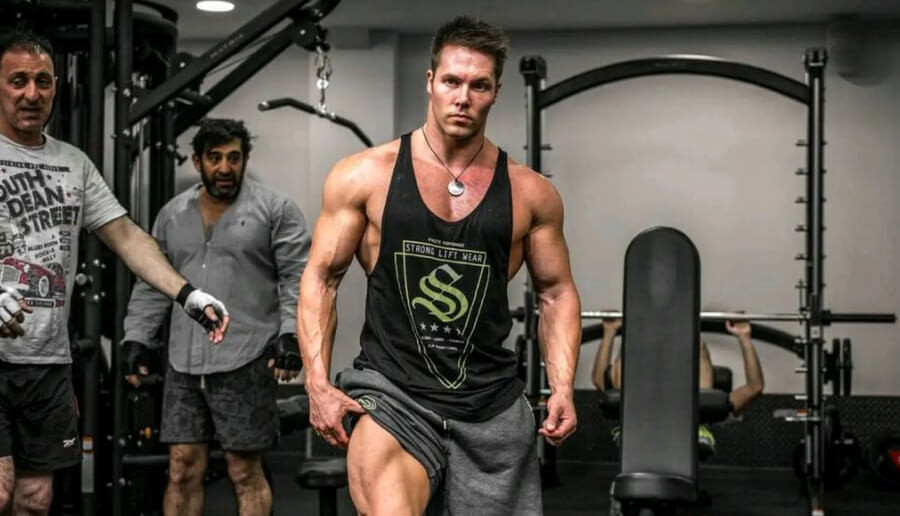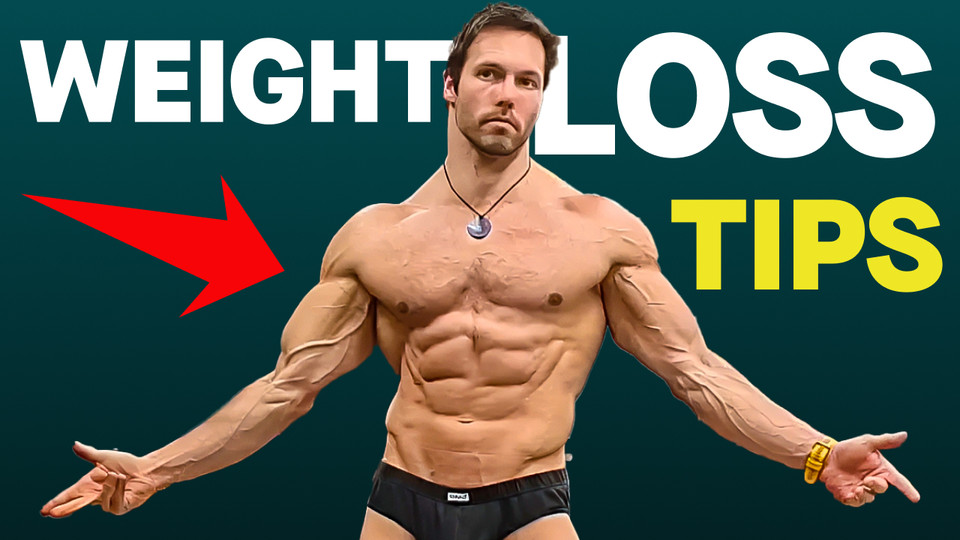What’s the difference between weight loss and fat loss? Is there a difference? I sat down with natural bodybuilding champion Aaron Curtis to discuss his thoughts on the difference between weight loss and fat loss. I’ve also done my own research to see what the other experts and studies out there say.
So – losing fat vs losing weight – what’s the difference?
“Fat loss is generally involved in weight loss. Obviously, you can lose more than just fat when you’re losing weight, like muscle,” Aaron Curtis told MealPrep.
“Generally people don’t want to lose muscle, but I’ve actually guided people that do want to lose muscle before. For example, someone who was moving into the fashion world and wanted to drop some muscle to be able to walk the runway. She was quite fit and athletic looking. So that was very weird for me because it’s just going against what you generally want!
But in regards to the difference between fat loss and weight loss, Aaron said it can definitely be very different
He added: “But generally what we’re trying to do when we say lose weight is to lose body fat.”
Weight Loss Vs Fat Loss: The Difference Explained

Weight loss refers to a decrease in your total body weight whether that be from muscle, water weight, or fat loss.
Fat loss refers to weight loss from fat, and it’s a more specific goal than overall weight loss
However, it can be hard to know whether you’re losing weight from fat, muscle, or water without a dedicated body fat scanner. Many at-home scales do offer body fat percentage features, but they aren’t as accurate as a DEXA Body Composition Scan – which is regarded as the most accurate way to determine body fat and muscle distribution.
How to Tell if You’re Losing Fat
Most people would track their weight loss by a scale, but as mentioned, it’s hard to track fat loss via a scale unless it’s a DEXA scan run by a specialist.
That’s why tracking your weight via a scale only isn’t a good way to determine if you’re losing fat or muscle, and in what amounts.
To really and accurately track your body fat and how much fat you’re losing, you need a body composition scan that measures your percentage of fat to muscle, and you’d need to complete them over regular intervals to really track your progress.
Don’t Focus on Weight Loss – Focus on Fat Loss

Most weight loss programs out there say they’ll help you lose weight fast – not fat fast. However, with these kinds of programs, a lot of the weight you drop may include water and muscle too. You don’t typically want to lose muscle as muscle is a crucial component of your overall health.
A healthy percentage of muscle has a huge array of benefits, including better regulation of blood sugar levels, maintaining healthy levels of fat, and controlling overall inflammation in the body.
Studies have shown that a higher fat-to-muscle ratio is linked to diseases like obesity, diabetes, heart disease, cardiovascular disease, higher cholesterol levels, poor mental health and more.
That’s why maintaining a healthy level of muscle is crucial to your overall health as well as lowering your risk of age-related muscle loss which is responsible for frailty in old age, as well as potential disability.
Not to mention the more muscle you have, the easier time your body has fat burning every day, even when you’re resting.
How to Lose Fat While Maintaining/Gaining Muscle
1. Increase Your Protein Intake
One of the most agreed-upon principles for losing fat and maintaining/gaining muscle is increasing your daily protein. Protein has many roles, including making the enzymes that help with digestion and energy, regulating fluid balance, and supporting immune health.
You also need protein to maintain muscle and support new muscle growth, especially when you’re trying to lose fat.
How much protein do you need? Most health professionals recommend roughly 1-1.6g per kilogram of body weight – so someone who is 70kg would want to eat roughly 70-112g of protein per day.
However, it’s important to remember your protein needs differ depending on your age, gender, overall health level and level of physical activity.
2. Exercise 3-4 x Per Week
If you’re trying to lose fat over general weight, exercise is one of the best ways to do it. While exercise alone is a great way to maintain muscle mass without dieting, combining exercise with a high protein intake will significantly help you lose fat and grow/maintain muscle.
Is it better to partake in resistance training/strength training or high-intensity interval training (HIIT) /cardio for weight loss? Most people think that strength training is only used to build muscle, but that’s not the case. Strength training is a great way to lose fat as well as gain muscle.
Aaron said: “I would say they’re similar because at the end of the day you’re doing HIIT training, you’re working hard for a period of time, then you’re having a rest period for a short period of time, then going again. So it’s very similar to a weight training repair.
“If you enjoy doing HIIT keep doing it, or if you enjoy weightlifting and you don’t like HIIT, then I would say don’t force yourself to do it. For fat loss, you just need to do something that you enjoy and that’s sustainable.”
3. Eat a Reduced Calorie Diet
To lower body fat levels, you need to be in a calorie deficit (which basically means eating fewer calories than your body expends in energy each day). You can be in a calorie deficit by eating less calories or exercising, but typically both are best.
However, be mindful that cutting your calories too much can lead to a greater loss of muscle than fat – which you don’t want. That’s why it’s a good idea to also count your macronutrient intake – carbs, fats, protein – (read our guide) when also counting calories to ensure you’re getting in enough protein so you’re not losing muscle.
Weight loss and fat loss are very different things, even if most people use them interchangeably. For most people when they say they want to lose weight, they really want to lose fat, and the best way to go about that is by exercising more, eating fewer calories and ensuring you’re eating enough protein. Remember, speak with a health professional before undertaking any new diet plan or a PT before trying a new gym routine.



